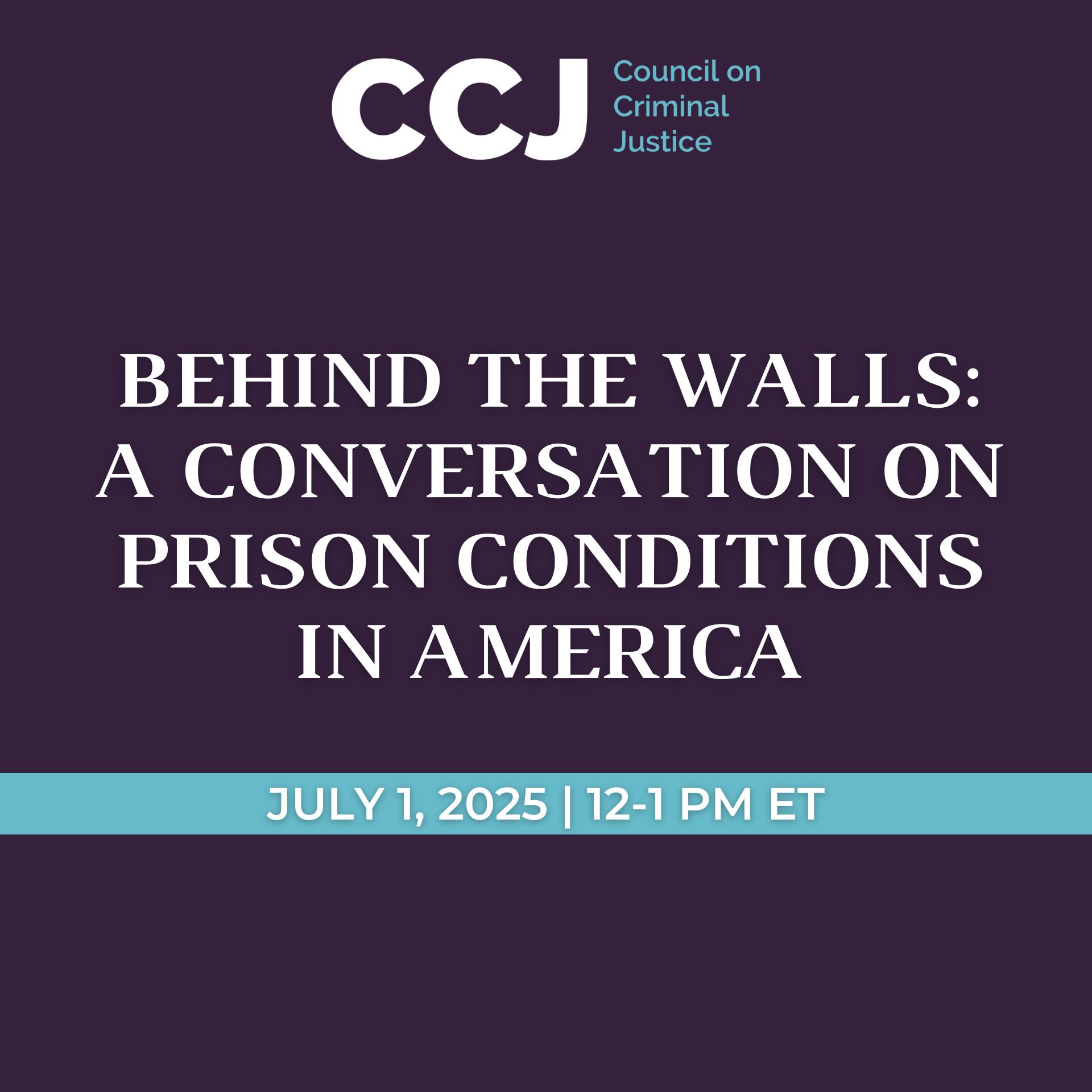5:00 a.m. ET, April 21, 2021
Contact: Jenifer Warren
jwarren@counciloncj.org
916-217-0780
WASHINGTON, D.C. — States that conducted extensive coronavirus testing in their prisons experienced significantly lower COVID-19 death rates behind bars than states that did not use a mass testing approach, a new study released by the National Commission on COVID-19 and Criminal Justice has found.
In states where testing behind bars was more limited, COVID-19 death rates among incarcerated people were nearly eight times the rate for non-incarcerated populations similar in age, race/ethnicity, and gender. That disparity was cut in half in states that conducted mass testing.
While it’s unclear precisely why mass testing led to lower death rates, it’s possible that early detection of coronavirus infections led to treatment, isolation, and other preventive measures that improved outcomes. That said, confirming a conclusive cause-and-effect connection between extensive testing and reduced mortality is difficult because of data limitations, the report’s author said. Variations in states’ use of other measures to limit the spread of COVID-19, such as mask requirements, the isolation of symptomatic individuals, suspension of visits and intake, and access to vaccinations, also may have influenced results.
The report, prepared by economist Kevin Schnepel of Simon Fraser University, compared COVID-19 outcomes in 32 states with sufficient data for analysis. Seventeen of those states adopted mass testing – defined as a strategy with the explicit intent to test all incarcerated people – and 15 states did not. Overall, data through late February showed that one in every three people in prison in these 32 states tested positive for COVID-19 – 4.3 times the rate outside of prisons.
The study also found a wide variation in testing rates, with some states administering an average of one test per incarcerated person and others testing at a rate of 10 or more tests per individual. Four states – Colorado, Connecticut, Michigan, and Vermont – had some of the highest testing rates. While the details of those states’ approaches varied, all had good COVID-19 outcomes compared to many other state prison systems. Most notably, Vermont has reported no deaths of prisoners due to COVID-19.
Another factor common to all four states was the high rate of individuals who were asymptomatic but tested positive. The authors said that finding suggests that states not currently testing asymptomatic people in prison should strongly consider doing so.
“More testing, early testing, and early mass testing, in particular, likely helped many states achieve lower rates of COVID-19 mortality in their prisons,” Schnepel said. “Despite the gradual spread of vaccinations behind bars, new variants of the coronavirus continue to emerge. States should keep mass testing in their toolkit of containment strategies – today and in the future – to help prevent COVID-19’s spread behind bars.”
“While we’re seeing progress, there are still states where no vaccines have been administered to people in prison,” said CCJ Senior Fellow Thomas Abt, the Commission’s director. “Policymakers should remain vigilant, heed this study’s findings, and consider adopting or continuing mass testing of incarcerated populations to save lives.”
The study is the most recent in a series of research reports released by the Commission. Led by former U.S. Attorneys General Loretta Lynch and Alberto Gonzales, the independent panel was established by the Council on Criminal Justice last July to examine COVID-19’s impacts on the justice system. In December, the Commission released a set of sweeping recommendations urging policymakers to reduce the density of the justice system and take other actions to better balance public health and public safety.
About the Council on Criminal Justice
The Council is a nonpartisan membership organization and think tank that advances understanding of the criminal justice policy challenges facing the nation and builds consensus for solutions based on facts, evidence, and fundamental principles of justice.
For more information on the Council and the Commission, visit https://counciloncj.org/



